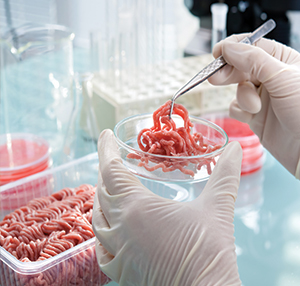- 24x7 live Support
- +971 56 2960963 | +91 6369 188 425

ISO 22000:2018 specifies requirements for a food safety management system where an organization in the food chain needs to demonstrate its ability to control food safety hazards in order to ensure that food is safe at the time of human consumption. It is applicable to all organizations, regardless of size, which are involved in any aspect of the food chain and want to implement systems that consistently provide safe products. The means of meeting any requirements of ISO 22000:2018 can be accomplished through the use of internal and/or external resources.
Becoming certified to ISO 22000 allows a company to show their customers that they have a food safety management system in place. This provides customer confidence in the product. This is becoming more and more important as customers demand safe food and food processors require that ingredients obtained from their suppliers to be safe.
The standard approach to ISO 22000 is that specified by the Codex Alimentarius, 1997, and follows 7 basic principles:
ISO 22000:2018 specifies requirements to enable an organization
Food Safety management system (FSMS) is defined as the part of an organization's overall management system. This system consists of policy, objectives, processes, programs, etc. These aim to eliminate food related hazards and ensure food is safe to consume.
To establish an effective FSMS, the ISO 22000 Standard is widely used across the World. The latest version of this standard is the ISO 22000:2018 standard.
No. Not necessarily. Any Organization in the food chain from feed producers to being served to the consumers can get certified to ISO 22000. These include feed producers, food producers, food packers, food distributors, food retail and restaurants.
Upon successful completion of the ISO documentation audit and ISO Implementation audit, the certification body issues the ISO 22000 certificate for 3 years. After certification, there will be a surveillance audit each at the end of the first and second years. The next year will be the Re-certification audit.
Yes. ISO 22000 Certification can be obtained irrespective of the size of an organization starting from 2 to thousands of people. Let your industry be a tiny, micro, small scale, medium scale, large scale or a very large scale. The same clauses apply. The only difference is that for an organization of lesser size, the implementation can be quicker and easier than that of a large sized organization.
In simple terms, accreditation is like certification by the certification body. In the mean while accreditation cannot be used as an interchangeable option for certification or registration.
Organizations which can implement ISO 22000 are as follows;
